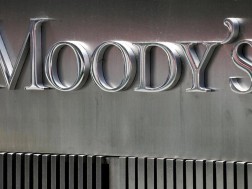Israeli banks looked such a safe investment with combined record profits of NIS 14 billion (USD 3.4 billion) in the first half of 2023 and double-digit return on equity, which most banks overseas could only envy.
These strong results saw the Tel Aviv Stock Exchange Banking Index rally 12% in September to an historic peak. But the Hamas atrocities on October 7 have changed all that. Between the start of the fighting and October 23 the Banking Index, which includes Israel's five biggest banks - Bank Leumi (TASE:LUMI), Bank Hapoalim (TASE: POLI), Israel Discount Bank (TASE: DSCT), Mizrahi Tefahot Bank, and First International Bank of Israel (TASE:FTIN1; FTIN5) - fell 20%. The Banking Index is now down 6% since the start of 2023.
Since the start of the fighting Leumi is down 22%, Discount and First International are both down 20.4%, Hapoalim is down 18% and Mizrahi Tefahot is down 17.1%. This is unlikely to be the bottom. Market sources believe that the longer the fighting goes on, the more investors will sell their shares in the banks.
Leader Capital Markets VP research Alon Glazer says, "You must separate the situation of the banks and what is happening to their shares. The decline in the value of the shares is the result of two things - an expected increase in risk, which is clearly happening, and foreign investors who are selling bank shares, which is a very understandable step on their part. Israelis would not hold bank shares in Ukraine while there is a war there. Therefore, beyond the expected damage to the banks' activities and the increase in risk, another factor comes into play that affects the sector - the banks are one of the only sectors in which there is substantial foreign investment."
"The easiest index to enter and exit"
Psagot Securities head of equities research Micha Goldberg, says banks are among the sectors most exposed to foreign investors. However, he also attributes the sharp declines to the fact that bank stocks are among the most liquid on the Tel Aviv Stock Exchange. "You have to remember that the financial system is the essential industry and the most substantial in Tel Aviv in terms of trading," he explains, "and the Banking Index is also the index that is the easiest to enter and exit."
Sigma Investment house chief investment officer Idan Azoulay says the banks are a kind of barometer for the Israeli economy. "So in the current period there will probably be a significant moderation in their activity."
If so, why did Leumi drop the sharpest? Goldberg points out that it is a combination of several factors. "Foreign investors probably hold this share more than the others and Leumi apparently had a major entity that sold shares. This, along with concerns about the large exposure of the bank's credit portfolio to the real estate sector, and other smaller factors."
Expected growth in funds set aside for credit losses
As mentioned, along with the foreign investors and the high trading turnover, the war is expected to harm the banks' activities. The main risk is increased difficulty in repaying loans for businesses and households, and in particular for the real estate industry.
Israeli ratings agency Midroog cites these risks but adds, "At this stage we do not anticipate a significant liquidity risk to the system, given a relatively stable source structure, which relies on a substantial component of retail deposits, which have demonstrated high stability throughout previous crises."
Glazer agrees, "It is clear that the security incident is a threat to the very large credit portfolios of the banks, and we assume that in the next quarter we will see a larger group provision (in the second quarter the five largest banks together set aside NIS 1.5 billion). At the same time, we expect that the banks will be forced to continue giving various benefits to customers, which means a loss of income. However, the bigger threat is around the question of how large the provisions for credit losses will be," he stresses.
Is now the time to invest in the banks?
In view of the average capital multiples in the banking system, when the banks' market value is divided by its equity capital, Glazer is not convinced. "This is not a cheap average from a historical point of view," he says. "So as of today, when we are in the midst of a major event, the banks do not represent an exceptional opportunity in terms of price."
But Azoulay does think that "a very interesting investment opportunity has been created here. Leumi trades at a capital multiplier of 0.73 and Hapoalim around 0.77, so the risk-to-opportunity ratio is excellent. When they reach a multiplier of 0.9 in a calm and normal period, the profit potential is between 20% and 30%, and these are opportunities that arise mainly in times of crisis."
How will interest rate changes impact the banks?
One of the factors that will significantly affect the banks' results is the Bank of Israel interest rate. On Monday, the Monetary Committee left the rate unchanged at 4.75%, mainly to support the shekel, but most analysts believe the governor will have no choice in the next decision in December, but to cut the rate to help stimulate the economy.
Goldberg says, "The current interest rate decision does not have a significant impact on the banks. No one knows how long the fighting will last and how deep it will go, but the interest rate will eventually drop. Even if it were to drop now, I don't think it would affect this year because we are nearing the end of October, but the fact that the Bank of Israel did not lower the interest rate is good for the banks because profitability is not affected. It should be remembered that the banks have already come out with relief programs for customers, freezing and postponing payments, so it doesn't matter what interest rate they were currently charging, and in any case the damage to financing profits is expected in the fourth quarter. When we see a drop in interest rates it is expected to hurt in the banks, but according to the analysis of the Bank of Israel research department, it will be a cut of less than 1%, and if this is the case, the damage to the banks will not be that terrible," Globes reports.
















